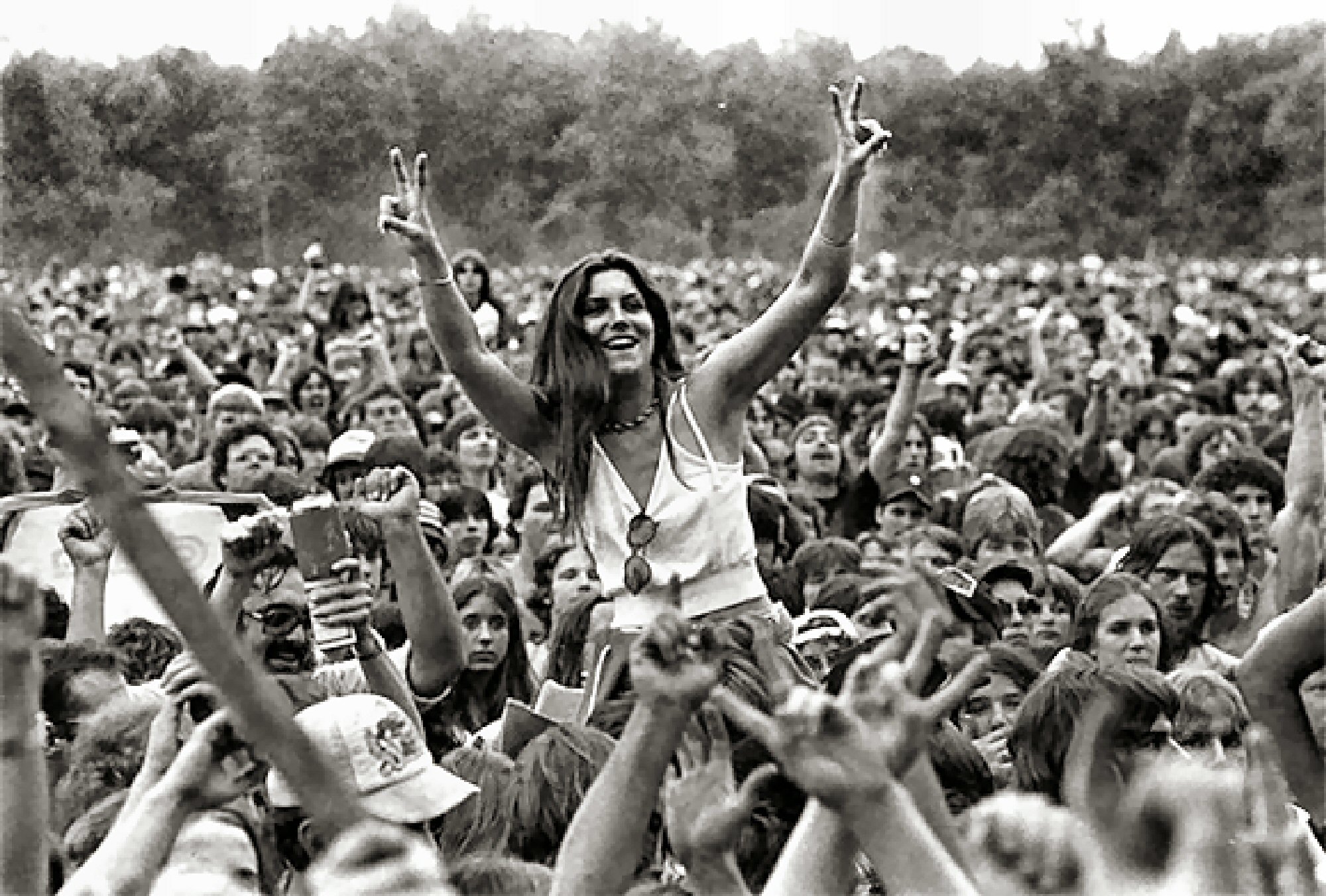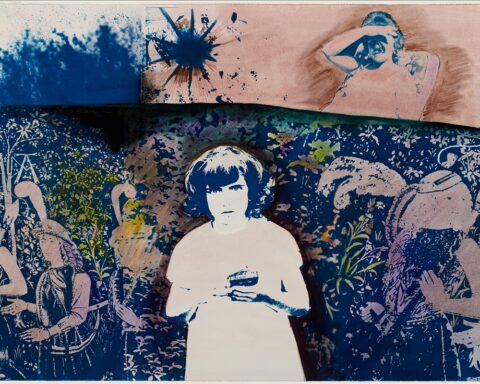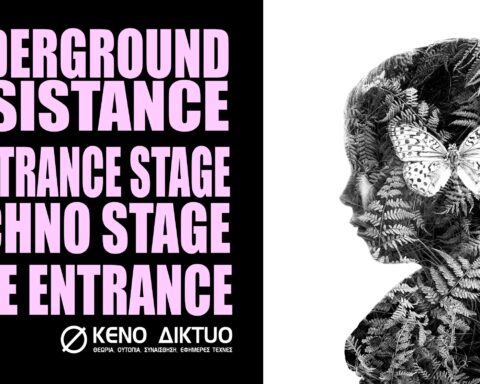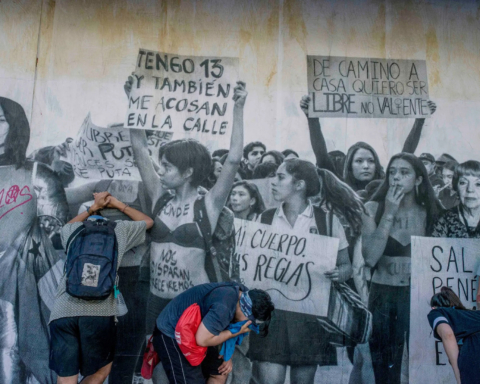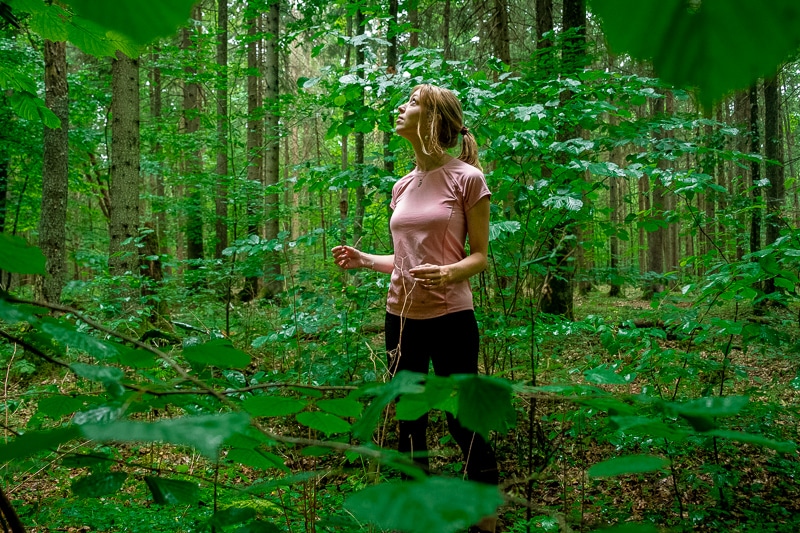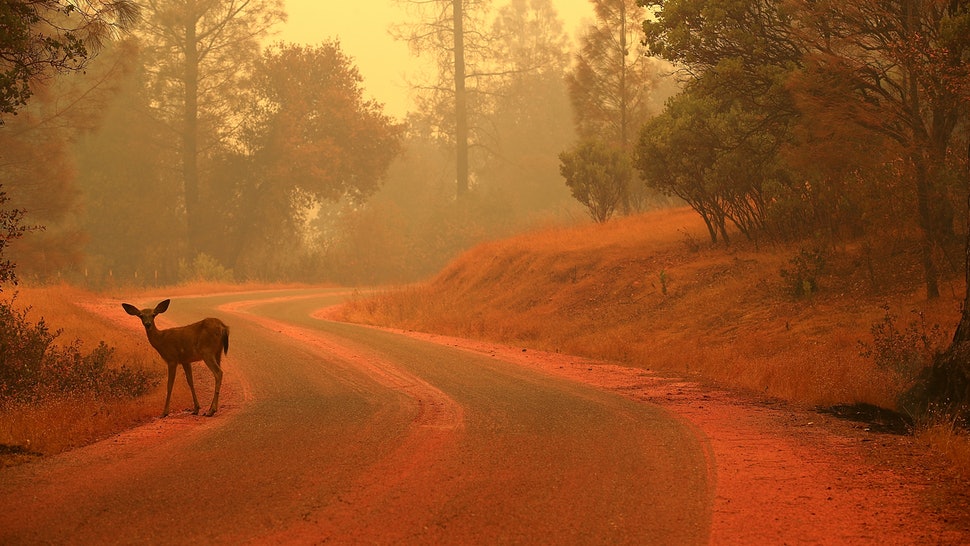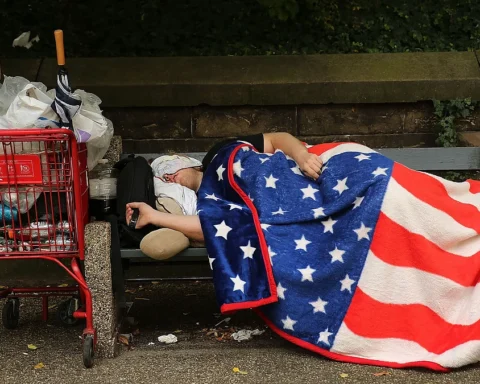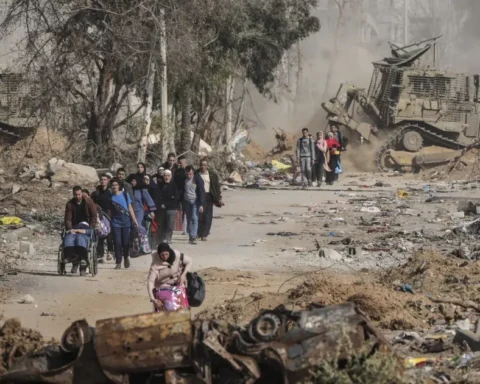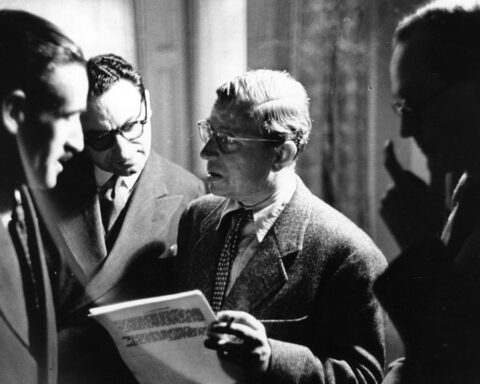The Commune was the biggest festival of the nineteenth century. Underlying the events of that spring of 1871 one can see the insurgents’ feeling that they had become the masters of their own history, not so much on the level of “governmental” politics as on the level of their everyday life. (Consider, for example, the games everyone played with their weapons: they were in fact playing with power.) It is also in this sense that Marx should be understood when he says that “the most important social measure of the Commune was its own existence in acts.”
Guy Debord, Attila Kotányi & Raoul Vaneigem, Theses on the Paris Commune
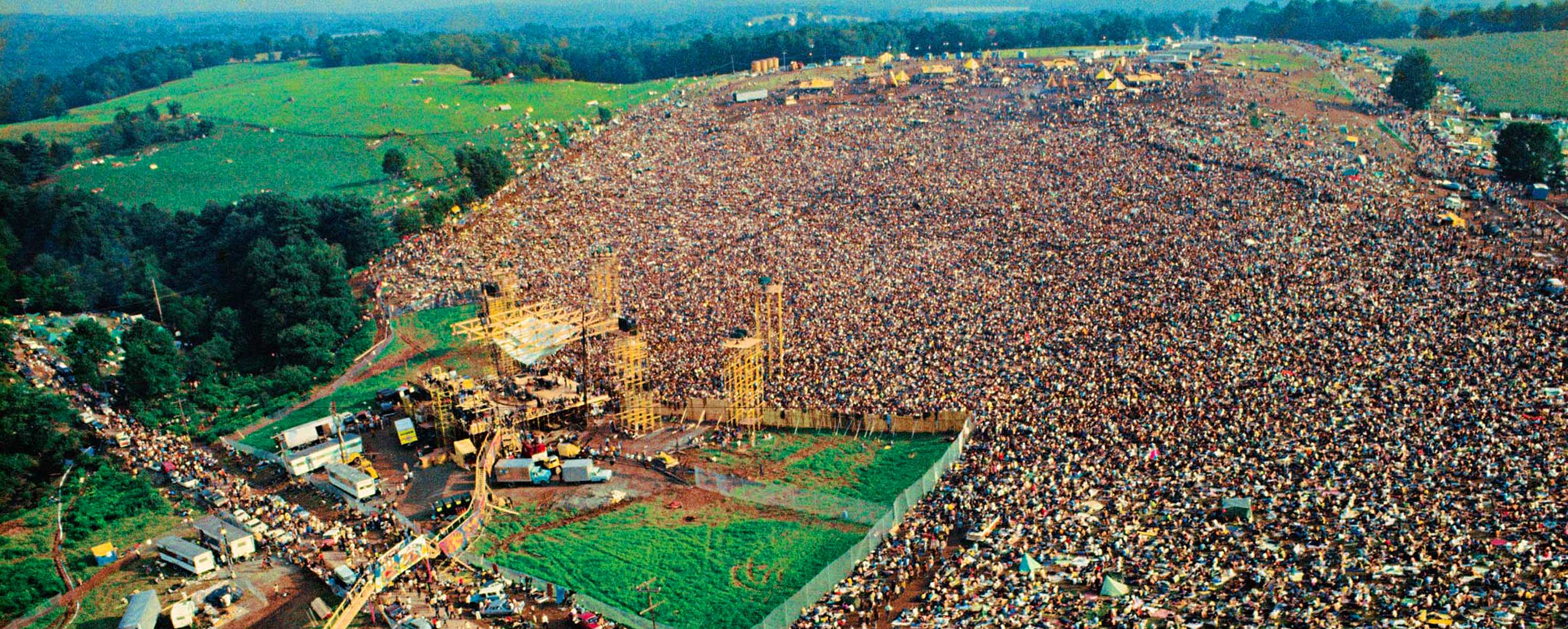
The principle of authority is so built in to every aspect of our society that it is only in revolutions, emergencies and “happenings” that the principle of spontaneous order emerges. But it does provide a glimpse of the kind of human behaviour that the anarchist regards as “normal” and the authoritarian sees as unusual. … It could be seen in spite of commercial exploitation in the pop festivals of the late 1960s, in a way which is not apparent to the reader of newspaper headlines. From “A cross-section of informed opinion” in an appendix to a report to the government, a local authority representative mentions “an atmosphere of peace and contentment which seems to be dominant amongst the participants” and a church representative mentions “a general atmosphere of considerable relaxation, friendliness and a great willingness to share”. The same kind of comments were made about the instant city of the Woodstock Festival in the United States: “Woodstock, if permanent, would have become one of America’s major cities in size alone, and certainly a unique one in the principles by which its citizens conducted themselves.”
Colin Ward, Anarchy in Action
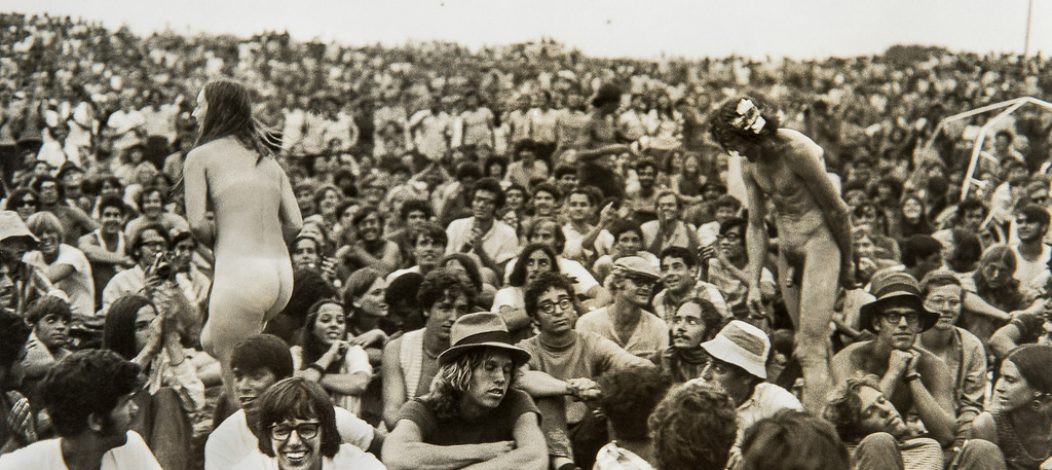
In 1970, Anarchy magazine (nº 116, October), published three short essays under the theme of “Instant Anarchy”. The first of the three was a piece by Graham Whiteman entitled the “Festival Moment”, in which we are offered an anarchist reading of the woodstock music festival (and of festivals in general).
As this week marks the 50th anniversary of Woodstock, we thought that there could be no better way to celebrate the occasion than to recall the anarchy of the event and to shake up its current status as a “historical monument” a little.
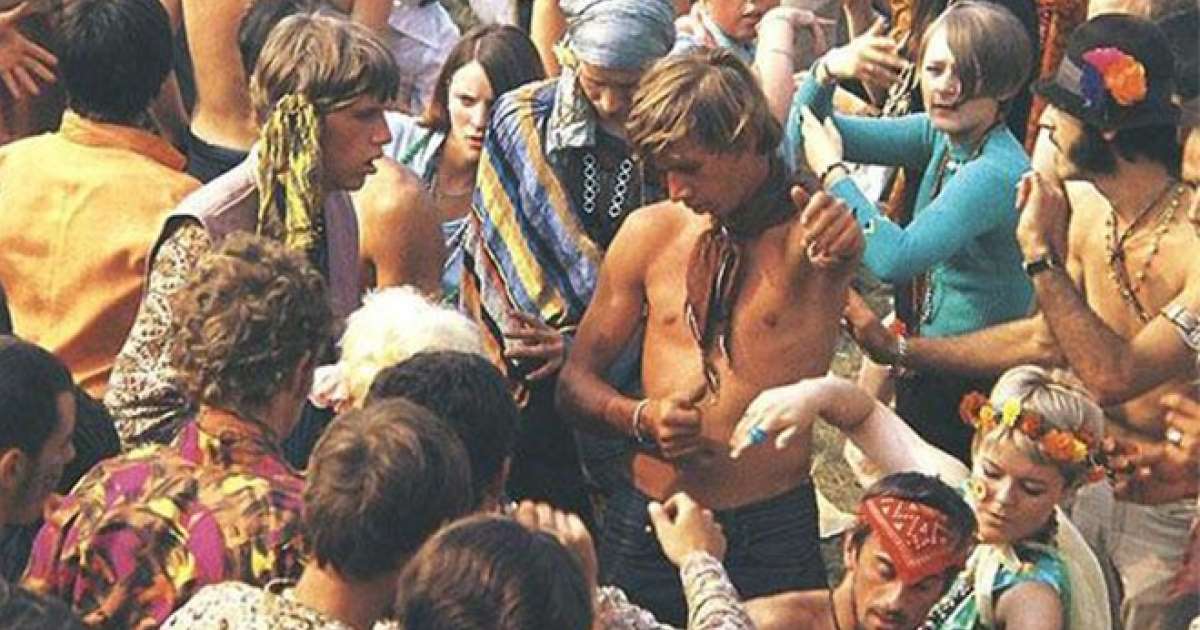
Instant Anarchy
1: Festival moment
Graham Whiteman
THE MAIN ARGUMENT OF ANARCHISM is concerned with the question of authority. Anarchists believe that a viable social organisation is possible without the assistance of a cruel, unjust and inherently evil coercive authority—and that mankind would be a happier, healthier and infinitely better species if it existed in a condition of freedom. Given this belief, all libertarian thinkers have attempted to construct theories of social organisation based on freedom and co-operation. But, from the earliest anarchist writings, down to those of the present day (see ANARCHY 62), the approach has been an intellectual one.
In the last few years, however, some most notable ad hoc experiments in this field have been made by people uncommitted to any political creed. It is possible that, through the medium of the open-air “pop” (the most convenient, if misleading word) festival, we are witnessing the beginnings of an “instant anarchy”.
At first sight, the linking of a large-scale music festival with the idea of social freedom may seem a paradox: they are mostly designed by profit hungry promoters (see Financial Times, 6.7.70), in order to squeeze as much money as possible from their long-haired patrons. The audience is dependent—for their food, drink and general comfort—upon the facilities provided. These provisions are likely to be expensive, as are the fees charged for admission to the site. It lies with the nature of those attending a festival to transform what is basically an economic exercise, into an experiment in non-authoritarian (if temporary) community living. Without attempting any snapshot sociology, it is clear that participants in the sub-culture of youth are anarchic in their life-style: they have rejected the handed-down values of the parent, the teacher, the politician. To put it simply, the “heads” can manage very well without the heavy hand of authority, even if their ideas of useful living conflict with those of the well-read anarchist.
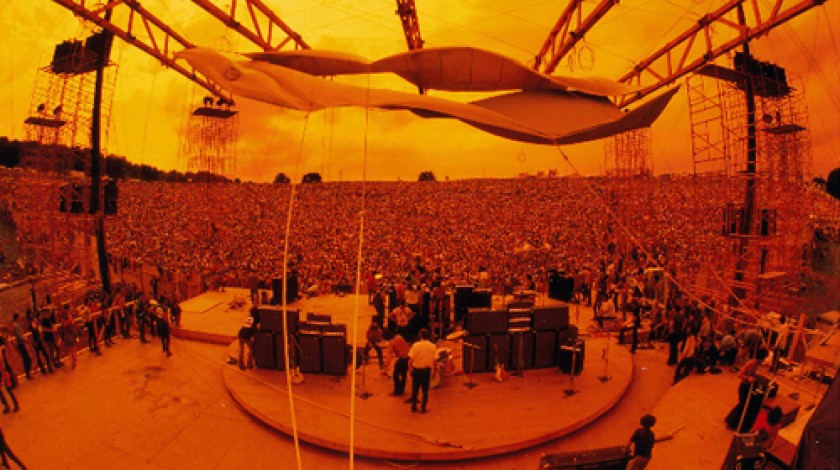
The concept of open-air music festivals is not new. Pop festivals, however, with their drugs, nudity and general freedom, have only been with us since 1967, and, since that time, some thirty festivals—involving a rough total audience of three million—have occurred in the US alone. Britain was rather late in following the fashion, but has since produced quite a few (Bath, Isle of Wight, Plumpton, etc.). To date, the most widely reported and discussed festival took place in New York State, in August of last year; because of the film illustrating it, those who were not present are able to see that this event—Woodstock—was notable in many ways. It has perhaps, a special relevance to the anarchist.
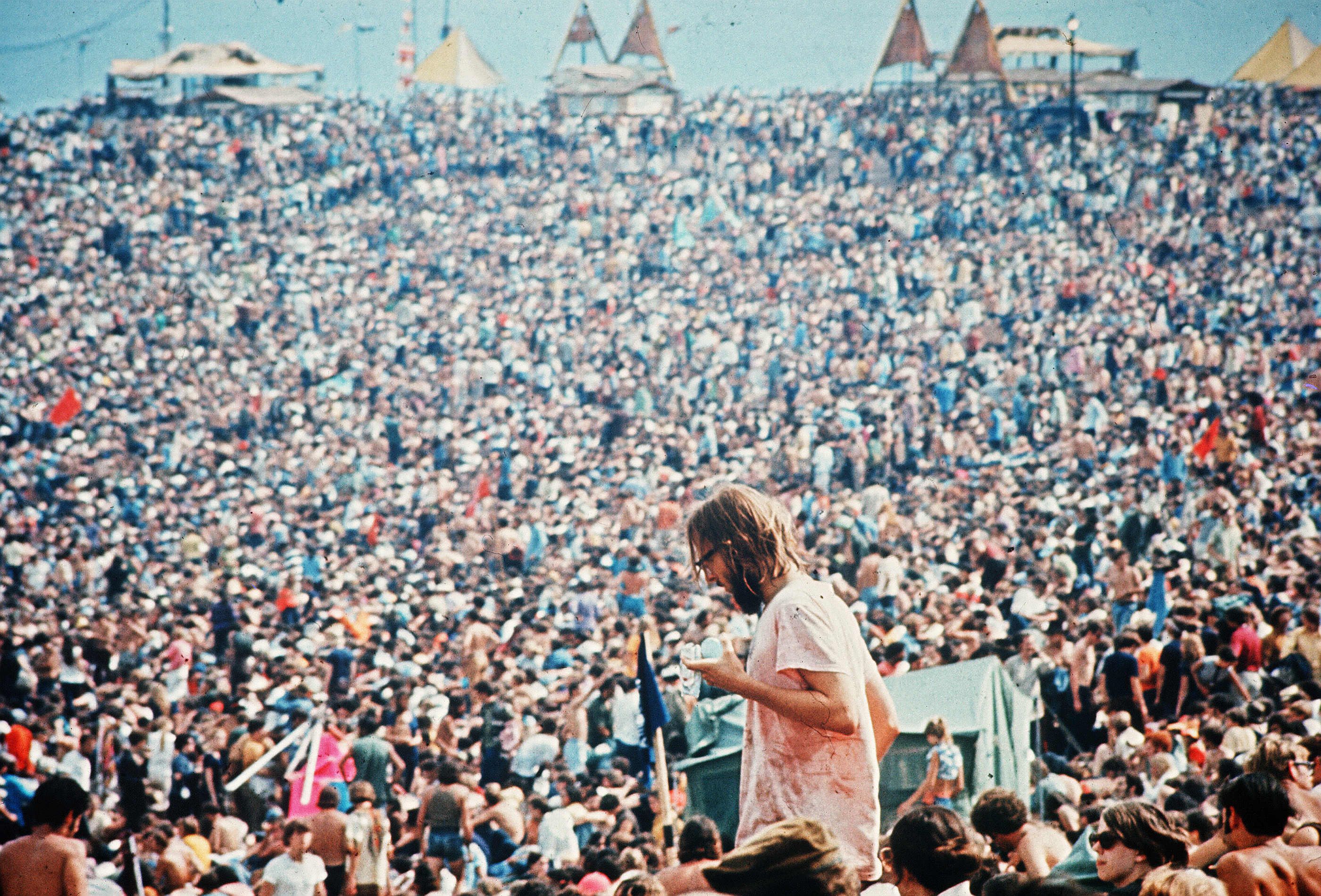
Woodstock lasted over three days, and the audience has been estimated as consisting of “half a million freaks”, coming, ostensibly, to see some of the major pop musicians. The site was labelled, among other things, as the “10th largest city in the US”. If it was a city, then it was certainly an unusual one. During the three days, there were no murders, thefts, fights, race-riots or any of the worse things that modern urban man accepts as “normal”. Despite some of those problems that daily occur in cities (traffic jams, the disposal of rubbish, overcrowding, the straining of basic amenities), the film is able to show us people smiling, laughing, just enjoying themselves and their freedom; the interviews emphasise the important place that freedom has in the lives of these people. They regard it as a basic right, to be jealously guarded from the encroachment of the policeman and the parent; Woodstock was a massive affirmation of this right.
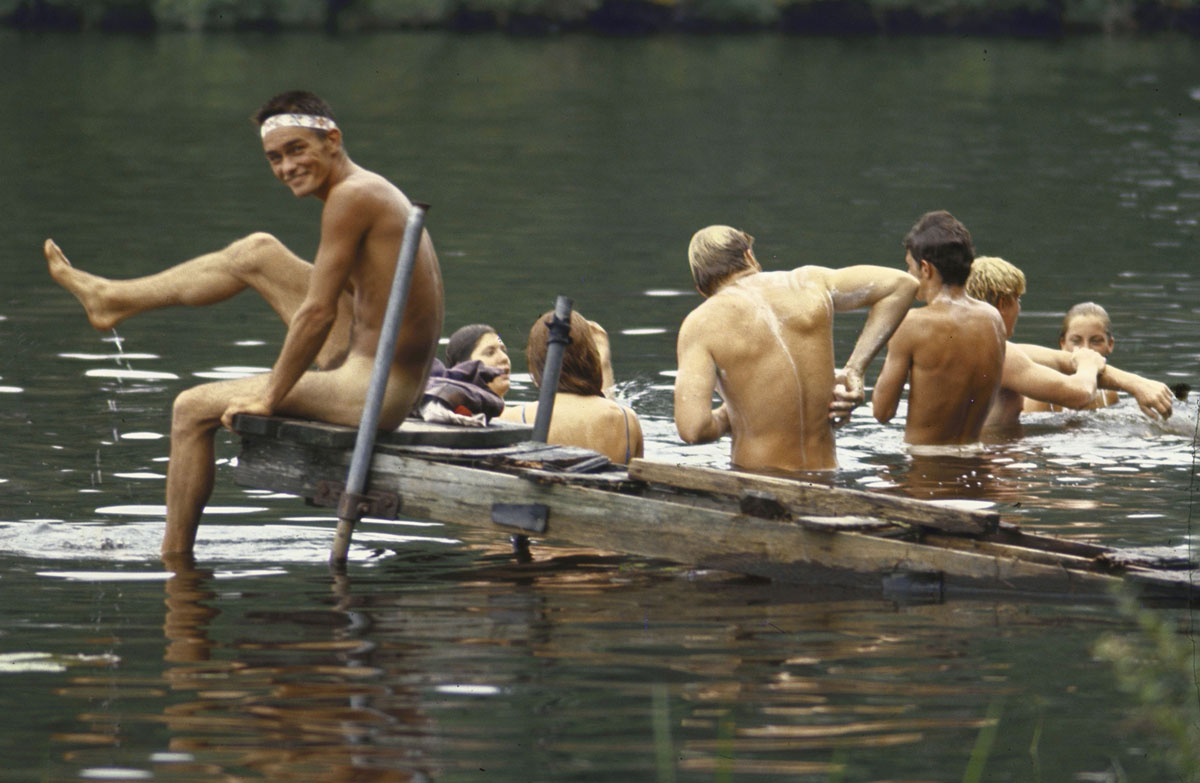
The Village Voice (21.8.69) confirmed this view. According to their reporter, the most amazing aspect of the festival was, again, not the music, but “the physical stamina, tolerance and good nature of a basically indoor, urban group of people caught in wretched outdoor conditions. It showed more dramatically than any planned demonstration could have that hip kids are fundamentally different from the beer-drinking, fist-fighting Fort Lauderdale crowds of yesteryear” … “people shared what they had, overlooked their differences, kept their cool, and generally smiled all weekend”.
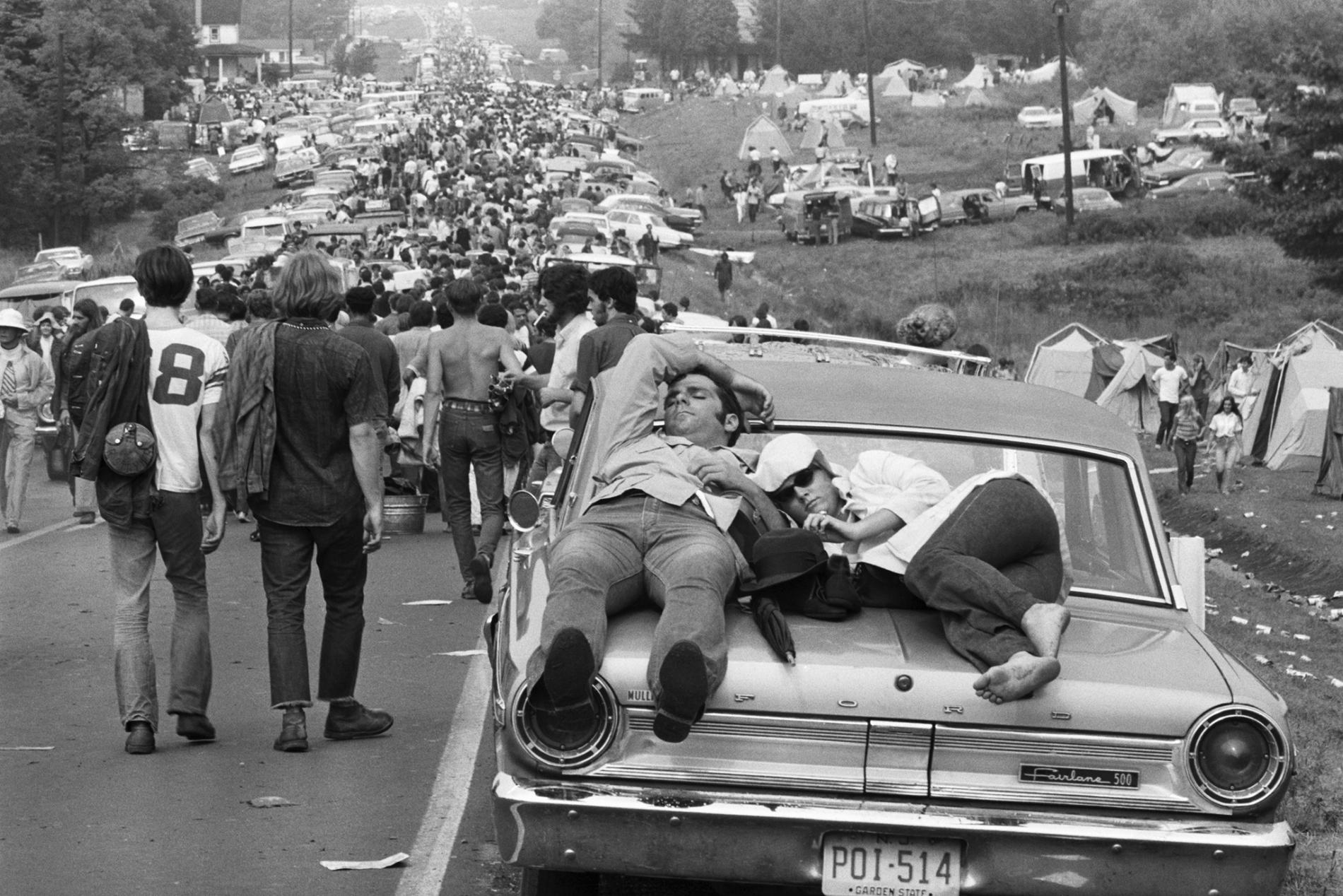
Unfortunately, not everyone realised the significance of Woodstock. The film shows us local traders, who are delighted at the crowds—and the money they have brought with them. It also shows us local residents who are anything but delighted, not only because their lawns are being trampled and defaced with rubbish, but because they have been confronted by a huge mass of people who are patently disinterested in tight suburban conformity—people who have long hair! people who go naked in public! people who use drugs! and people who do not have the slave mentality. These are the same residents who were pleased, when, after the festival, the Chief of Police was deprived of his job. He had offended his superiors by not arresting people inside the festival-grounds. It seems that part of a policeman’s duties is to stop citizens enjoying themselves.

The Establishment Press too, where it is not being outrightly hostile, is generally bewildered by such manifestations of co-operation and fraternity as can be seen in Woodstock (a pleasing exception was Barry Norman, in the Daily Mail of 25.6.70). Having a direct interest in the maintenance of exploitation and conformity, the large dailies concentrate on the more superficial, sensational facets of the pop festivals, and ignore their true significance—just as, with a political demonstration, they deal almost exclusively with the demonstration itself, and not the issue that promoted it. So, we read headlines, such as “Nude Girl Dances” or “New Drug Worry At Festival”. As might be expected, they hardly believe that large groups of people can gather and live together, without going dangerously berserk, especially when those groups are made up of people who find no attraction in the life of the obedient cog in the great economic machine.
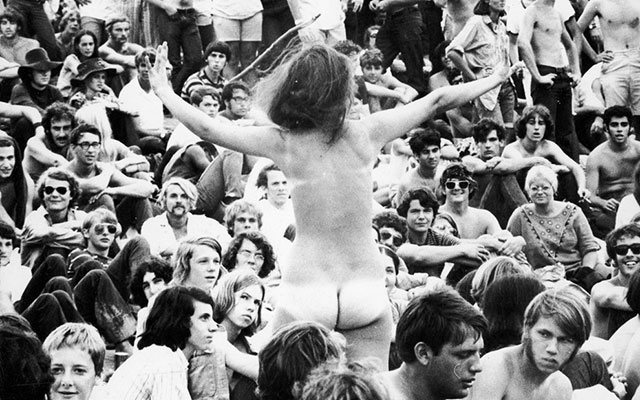
Accepting that “Woodstock” reinforces Kropotkin’s optimism in the basic sociability of human-beings, it remains for us to ask certain questions. The crowd at Woodstock was continually urged, throughout the course of the festival. to remain calm; they were constantly congratulated on their behaviour. Would this behaviour have been any different if a Hitler or a Stalin had taken over the stage and made a speech? To answer this, we must return to the “freaks” themselves. Much of the music they favour has a strong element of violence—complete with guitar-smashing and screamed vocals; it might appear that this would be reflected amongst the audience. But no, the music seems to be a form of catharsis; the audience apparently grow more pacific as the noise-level increases. One remembers a heartwarming scene in the film, where people gaily trample down fences, and one is forced to doubt the willingness of the festival crowd to be led, or manipulated. As long as the harassment is verbal, they just ignore it, or employ that terrible weapon, the laugh.
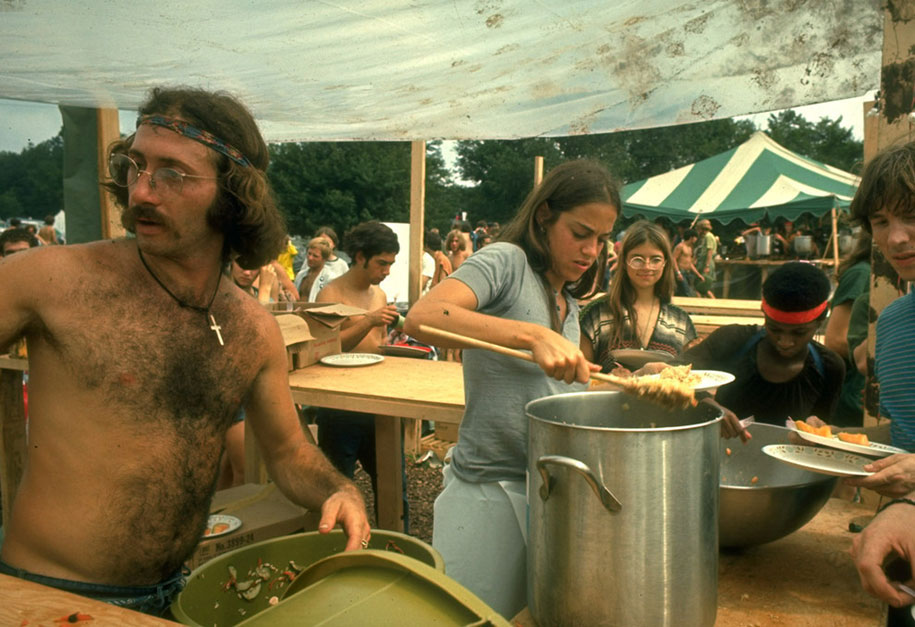
Food, drink, sanitation and provisions for shelter are usually provided at the larger weekend festivals (though they tend to be badly organised). At Woodstock, these were indeed provided (and mismanaged) and they had only to last for three days. Could the audience itself have organised these things and kept them going for a week, or a month? It is probable that necessity would have forced them to: there was much voluntary sharing of food at the festival, and this gives the impression that co-operation might have overcome any attempt at exploitation. Lastly, the members of the audience, in co-operating, were “looking after their own”, drawing on the common strength of their own alternative culture. What if a group of middle-aged Americans had arrived, complete with prejudice and sons in the National Guard? The crowd at Woodstock had to pass through just such people to reach the site, and what happened on that site was an example to the latter. Admittedly, one must be a little cautious with one’s enthusiasm, when one examines the composition of the pop festival audience. As the director of the Woodstock film (Michael Wadleigh) put it. “If you put 400,000 adults together in a field for three days, would they have produced a better record?” One naturally doubts if they would—through no real fault of their own.
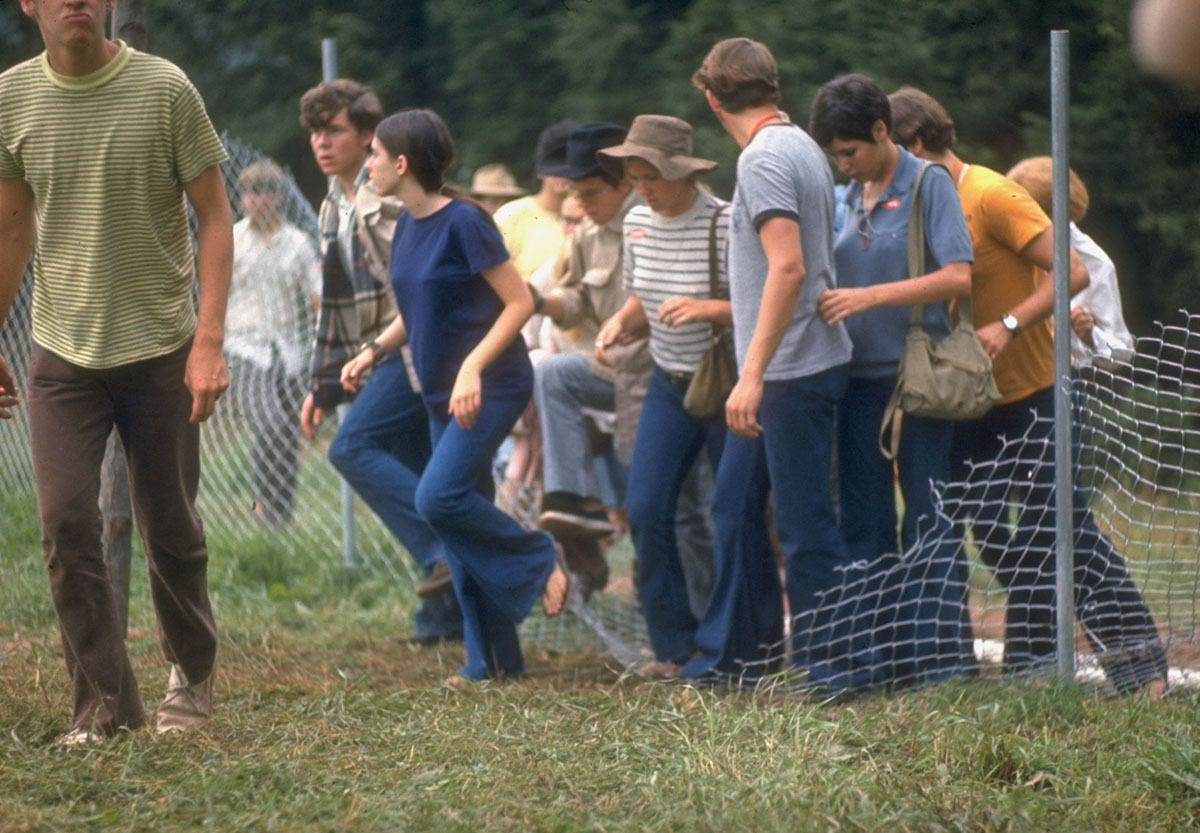
In a society that deliberately sponsors alienation and a blind obedience to all authority, it is much safer to live and react in a manner pleasing to those in control. The main example provided by festivals is that it is possible to live without the ministrations of an authority, once an instilled prejudice towards that authority is forgotten. The slave has to deny the validity of the slave-master.

There is an element of romance in some anarchist literature, a nostalgia for a golden past, a desire to return to innocence and simplicity of living (e.g. Tolstoy). From this view, there often follows a wish to retire into the countryside, and build a community based on mutual aid, free from those evils which appear to be inherent in city-living. The modern commune movement is an extension of this concept. Rock festivals provide a temporary illustration of this desire. One of those with experience of a large outdoor festival agreed. “You’re ‘escaping’ from the city, you know? You can smoke, fuck, whatever, and mostly they are going to leave you alone” (Rolling Stone, 6.8.70).
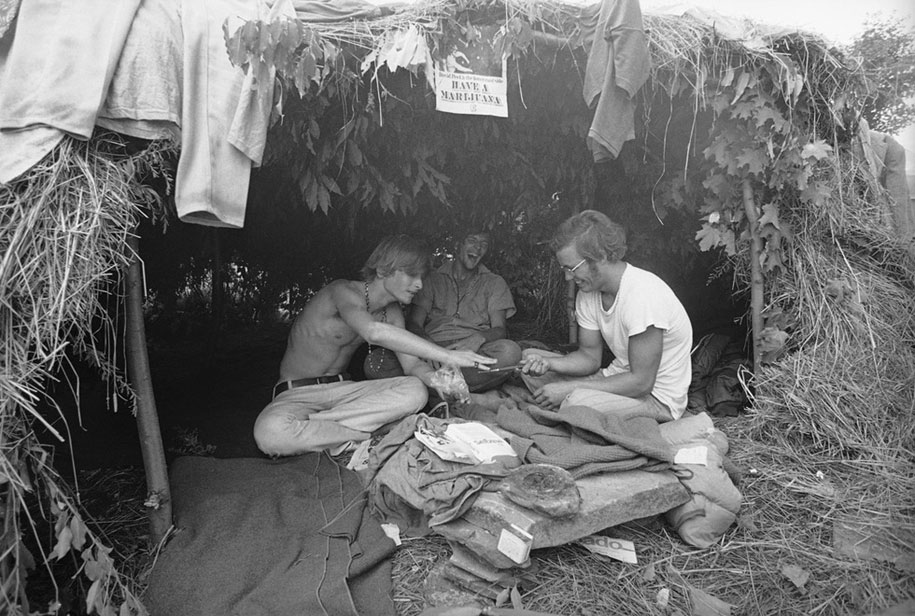
One wonders if a temporary experience like this can have a more permanent significance. Woodstock, if permanent, would have become one of America’s major cities in size alone, and certainly a unique one in the principles by which its citizens conducted themselves. Something lasting could well have come from a display of pop music—and pop music is basically a transitory experience, as is the whole spectrum of pop-culture.
A community functioning on the principles of harmony and freedom might have a better chance of survival if, initially, it was a smaller unit than that which forms the audience of a festival like Woodstock. However well-intentioned a group of people are, the common problems of living inevitably provide opportunities that could be exploited by the self-seeking; these opportunities would be magnified, where those to be led are great in number (sheer density of population, is, of course, an argument against democracy). So, until the organisation of a community is functioning, it might be advisable to limit the number of individuals concerned. Naturally, it would be of the utmost importance for those individuals to keep a jealous guard on their freedom; it would rest with them to collectively resist the encroachments of the potential boss or policeman.
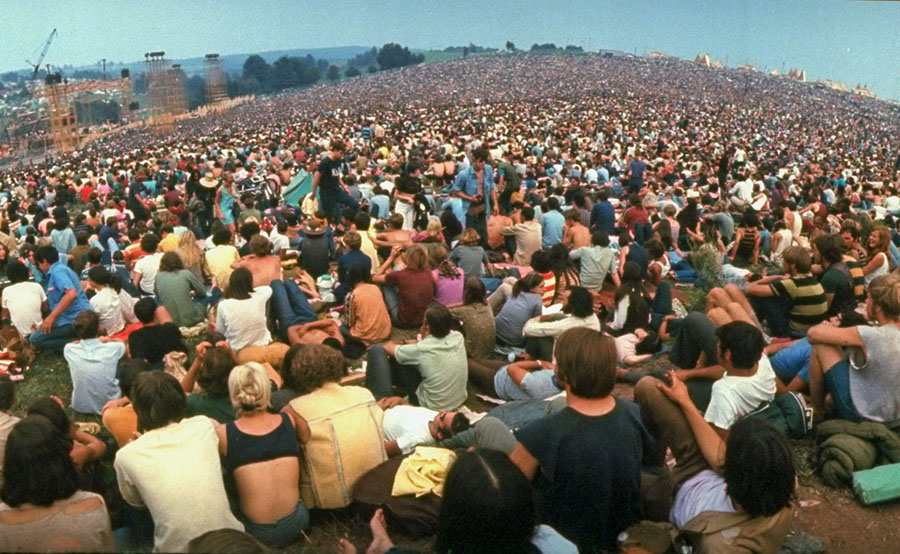
Any community has to work to survive. Without entering into the common anarchist theories of industry and agriculture, it is possible to say that the means of production can be held in common and used in such a way that fair and plentiful distribution of basic necessities is maintained. Anyway, one feels that the “heads” would find the rigours of competition just too much of a “hassle” to be worth bothering with. Those who also find working too much of an inconvenience would either have to live off the charity of those who are willing to support them, or leave the community and re-enter “straight” society. It is probable that most would find that working for themselves under a mutually organised system of industry and in support of a non-capitalist idea is not too taxing, either spiritually or physically.
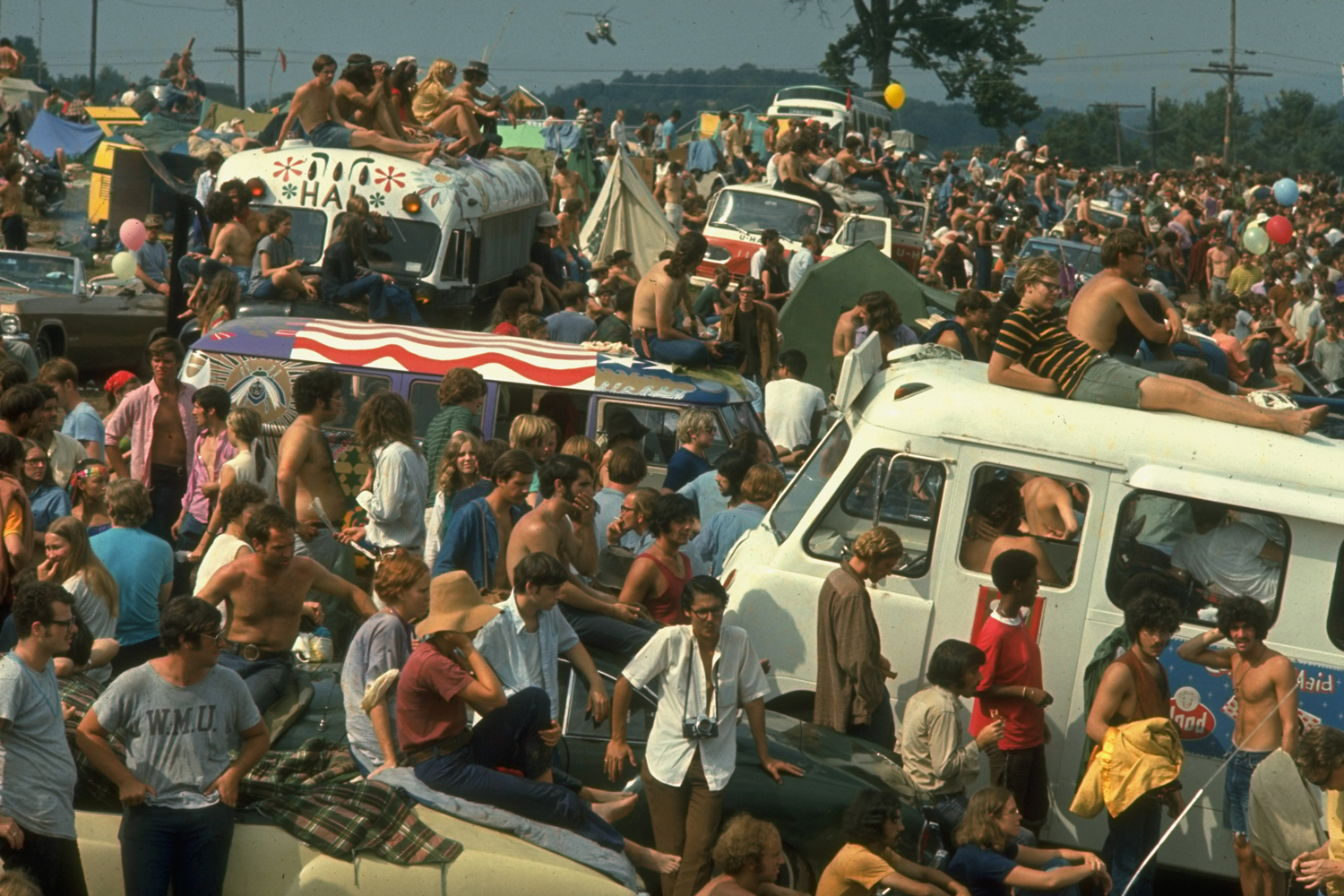
Those things that provide for the actual mechanics of living (e.g. housing, schools, hospitals, etc.) could be easily and cheaply provided—perhaps with the “Drop-City” structures in mind. All extra services would grow organically. Basically, housing itself, for instance, is expensive only when the price of the necessary land is itself exorbitant; one would assume that the land for our community is already available—the crowds at a pop-festival do not have to leave. They would merely be making use of what is already theirs! The ever-attentive policeman would have a difficult task in evicting several hundred thousand people, and would even the elusive conscience of society sanction the forcible removal of a group of people who just want to build their own homes, make their community, and start living in freedom?
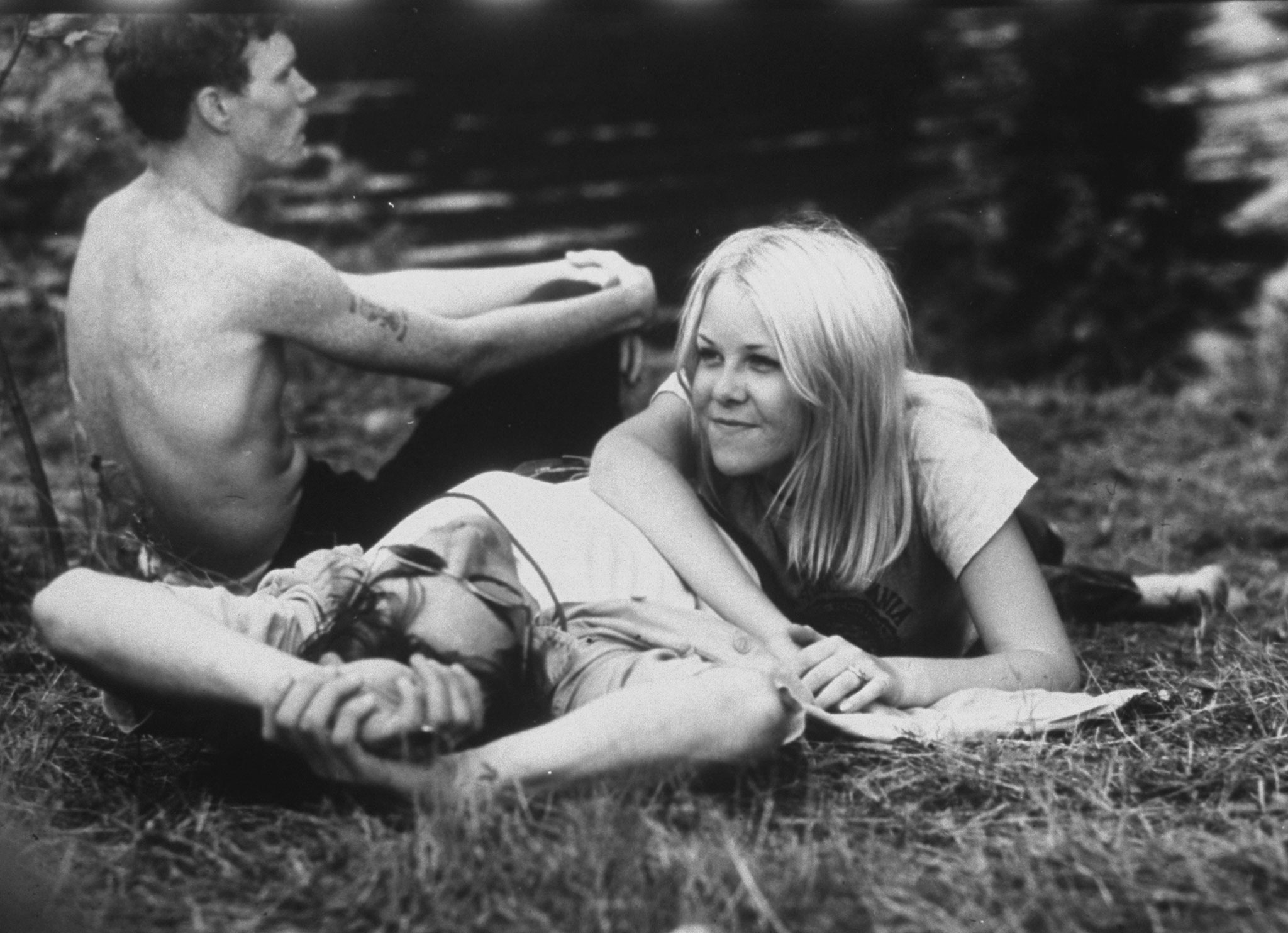
The children born and brought up in such a city, under such a libertarian ethos, would be an added guarantee of the success and viability of the anarchist community. They would learn from their parents’ errors, come to maturity and found their own communities, and, in turn, a new generation of children would inherit the example. Co-operative communities would mushroom until their very number made it impossible for them to be ignored. One then pictures an unemployed government, sitting in the midst of its redundant army and police-force, realising at last that the master is neither necessary or wanted.
Those who think that this is but an idealistic dream are the same people who thought that it was impossible for people to gather en masse in a peaceful fashion—a terrible pessimism. The anarchist vision might, in the end, be realised as an off-shoot of something unconnected with social change: the gathering of people to enjoy themselves. Thus, Malatesta’s definition of revolution as being “the creation of new living institutions”, the example provided by those institutions and an educative programme arising from them, might all arise from the much-maligned pop-festival: a process of “instant anarchy”, feeling its way and being shaped by necessity, rather than a programme taken from the text-books.
Graham Whiteman
…
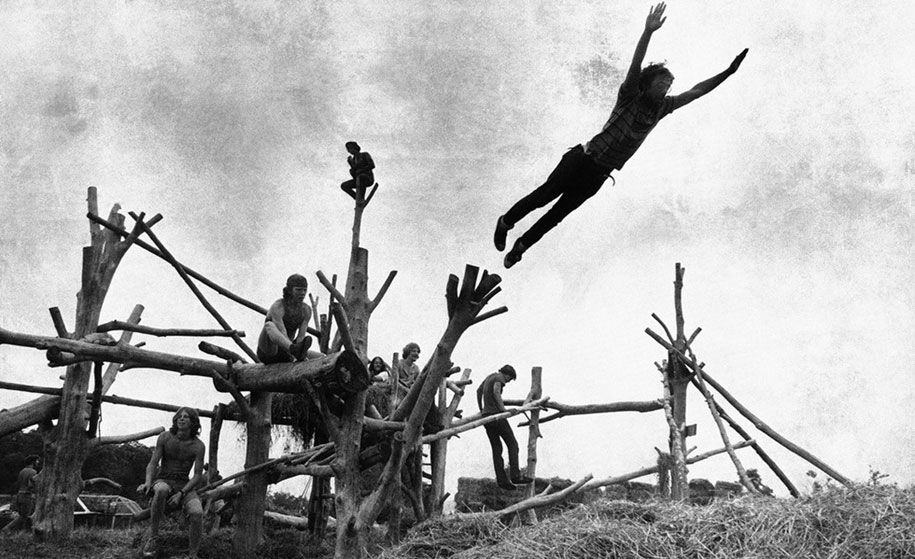
Ultimately cities will exist only as joyous tribal gatherings and fairs, to dissolve after a few weeks. Investigating new lifestyles is our work, as is the exploration of Ways to explore our inner realms—with the known dangers of crashing that go with such. We should work with political-minded people where it helps, hoping to enlarge their vision, and with people of all varieties of politics or thought at whatever point they become aware of environmental urgencies. Master the archaic and the primitive as models of basic nature-related cultures—as well as the most imaginative extensions of science—and build a community where these two vectors cross. —MILES in International Times 78 ( April 24-May 7, 1970)
…
Woodstock opened on Friday, August 15th, with Richie Havens, and closed on Sunday, with Jimi Hendrix … words here are unnecessary …

_____________________________________
text source: https://autonomies.org/
